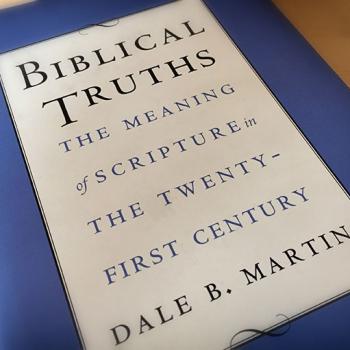The answer to the question posed by the title of Randal Rauser’s new book, What’s So Confusing About Grace? is “just about everything,” especially if you grew up, as Rauser did, in the North American evangelical subculture of the 80s and 90s.
Rauser’s spiritual memoir recounts his lifelong struggle to understand both the foundational and the superficial issues of Christian faith (the two are easily confused, as is made amply evident throughout the book).
Beginning with his conversion to Christianity at the age of five, Rauser takes us through seasons of certainty and doubt as he examines issues like salvation, hell, grace, good works, the Bible, the Church, and Christian doctrine. He “tells that story of moving from the naive innocence of a child’s faith, on through layers of doctrinal and ethical complexity, wrestling with the fear of ultimate failure, and finally arriving at an abiding trust in the God who is infinitely greater, wiser, more merciful, and more loving than I could ever be” (xii).
Equal parts humorous, sobering, and thought-provoking, Rauser explores the big issues of Christianity by honestly recounting the often self-deprecating anecdotes of his youth. He discusses hell through the story of an ill-fated gingerbread cookie, and exposes the hypocrisy of the notion that loving Jesus requires eschewing anything “secular,” which led him to smash his Peter Gabriel cassette tapes on the pavement. But he also offers more serious fare by tackling questions like: why does God allow so much pain and suffering? Can a serial killer be a Christian? How should we understand the violent texts of the Bible?
Though Rauser often leaves the most difficult questions unanswered (that’s why they’re so difficult, after all), he also provides wisdom about how to negotiate the pitfalls of conservative evangelicalism. After highlighting the problematic nature of a literal reading of the Bible, Rauser offers this interpretive principle:
“Gradually I moved away from the Literal Principle. But what interpretive approach is there to replace it? This is a question as complicated as the biblical library itself. And a satisfactory answer must address the nuances of distinct literary genres, the historical contexts in which various text were written, and the theological themes guiding each text…. But I do have a principle which I think can at least replace the Literal Principle as a general orientation to reading the entire library of Scripture. I call it the Jesus Principle and it goes like this: read the Bible in light of the life and teachings of Jesus. To put it another way, read the Bible with your Jesus glasses on. Finally here is my favorite version of the principle: read the Bible in a way that makes you more like Jesus.” (131)
And, just as reading the Bible through the lens of Jesus offers a workable biblical hermeneutic, Rauser gradually comes to realize that understanding Christianity through God’s unending, unbounded love is the only resolution to his quest to cram all of Christianity into a nutshell:
“Indeed, I kept at it for years with an endlessly evolving account of salvation: befriending Jesus; praying a sinner’s prayer; accepting and observing four (or five or six) spiritual laws; avoiding mortal sins and fatally errant beliefs. The list goes on and on. Ironically, the more I tried to simplify the Gospel, packing it into its own little nut, the more complex and unwieldy it became.” (292)
It won’t be spoiling the book to reveal Rauser’s conclusion about what lies at the heart of the gospel:
“Jesus loves me. And you. And by the way, he also loves our enemies. The truth is that he loves all of us, the good, the bad, and the ugly. And that’s not all. He loves every single square inch of the creation too. And he calls us to discover that love, to live in it, and to live it out to a broken and hurting world for the glory of God the Father.” (293)
Rauser readily admits when he doesn’t have the answers, and good-naturedly pokes at his younger self when he thought he did. This account of his spiritual growth over the last forty years is a wonderful demonstration of how doubt need not destroy faith, but can instead cause it to blossom.
Find out more about What’s So Confusing About Grace? here, or purchase it on Amazon here.
 Dan Wilkinson
Dan Wilkinson
Dan is the Executive Editor of the Unfundamentalist Christians blog. He is a writer, graphic designer and IT specialist. He lives in Montana, is married and cares for two cats.













